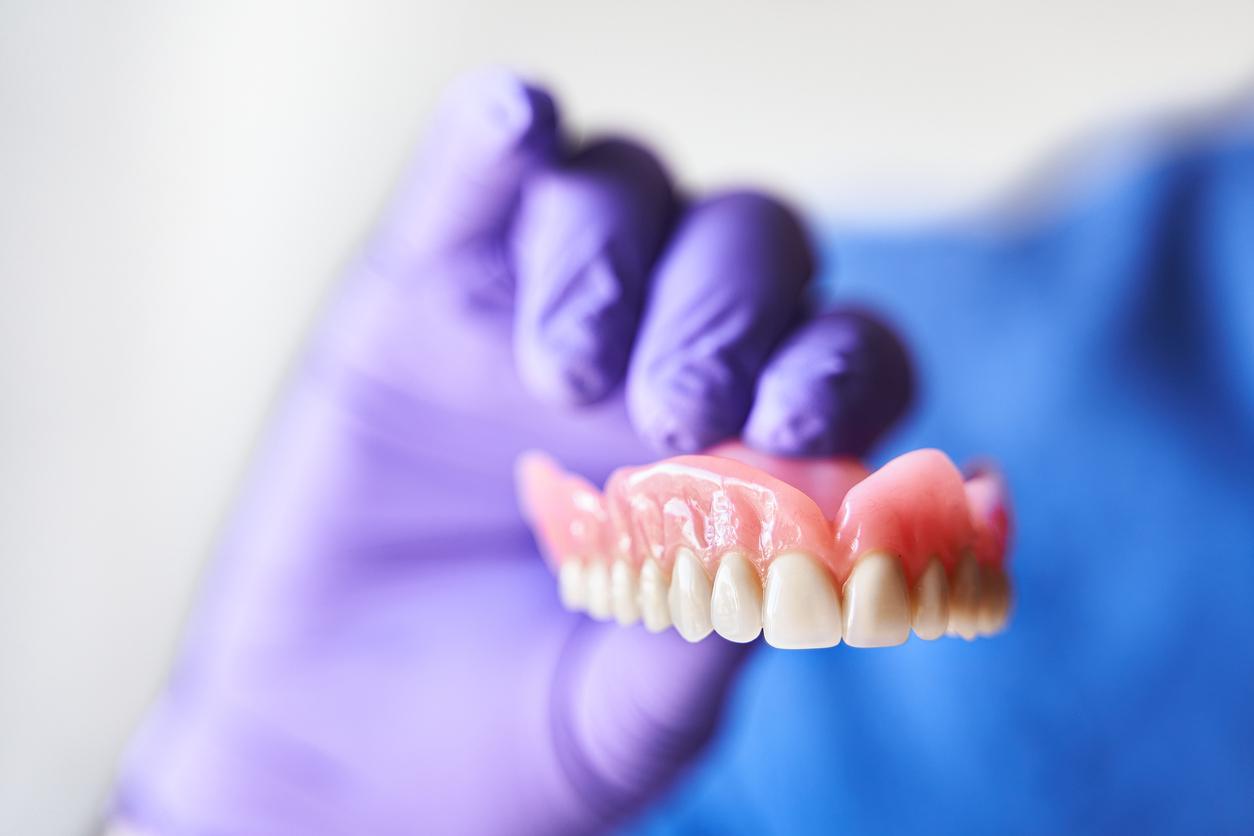From 2020, dental care will be covered 100% by Health Insurance. The French will have a choice of three treatment baskets, but overall only metal crowns for the back teeth and standard ceramic for the front teeth will be fully reimbursed.

Currently, only 43% of French people have access to dental care, compared to 71% in Germany, 85% in Denmark and 80% in the Netherlands. The very fact that 17% of French people renounce the fitting of dental prostheses because of the fixed fees, says a lot about the delay of France in terms of taking into dental care charge. TThree populations are particularly affected by these inequalities: people in precarious, disabled or dependent situations.
Thursday May 31 and Friday 1er June, two of the three main dental unions, the Dental Union and the CNSD, finally validated the new agreement proposed by the Health Insurance, thus paving the way for 100% coverage of dental care by one year and a half. From 2020, dental care and in particular the fitting of prostheses, will be covered 100% by Health Insurance. A campaign promise from Emmanuel Macron on the verge of being kept.
Free oral checks
Objective of this new text: to improve prevention in order to limit the fitting of prostheses and therefore better control the prices hitherto practiced by the profession. The Health Insurance agreement provides that from 2020, the 40% of bills remaining payable by the patient will now be fully reimbursed. All actions will be fully covered from January 1, 2021.
Other measures provided for by the agreement: free oral checks from 3 to 24 years old (instead of 6 to 18 years old currently) and fluoride varnish to prevent cavities in 6-9 year olds. The acts of devitalization of teeth and periodontology will become free for diabetics, while the care of the mentally handicapped will also be upgraded.
In order to finance these measures, the Health insurance and the complementary will have to pay 800 million over 5 years. Because the compensation for this support has been bitterly negotiated by the trade unions, who have succeeded in obtaining a revaluation of the prices of basic care such as scaling or treatment of cavities.
100% reimbursement conditions
According to The Parisian, patients will now have the choice between three baskets of care. The first with a “zero remaining charge” includes basic care and standard quality prostheses, the price of which will be capped at 500 euros. The second basket of care includes crowns, bridges and dentures of superior quality at prices capped at 550 euros, and which will therefore not be fully covered by Health Insurance. Finally, appear in the 3e care basket high-end, non-refundable prostheses, such as implants.
It is this two-tier health risk that denounces the Federation of Liberal Dental Unions (FDSL), the main organization in the sector, which slammed the door to negotiations and denounces “very insufficient prevention and an incentive for low-cost care”. Indeed, the text provides that only metal crowns for the back teeth and standard ceramic crowns for the front teeth will be fully reimbursed. “Demagogic measures which make us go back thirty years”, judges the president of the FSDL Patrick Stolera in Le Figaro.
The three unions also regret that the upgrades announced are not up to what they demanded. “The profession is making a big effort. We exchange the freedom of prices on prostheses against revaluations which are still insufficient. But it is a starting point, which we hope to improve over the months”, explains Thierry Soulié, president of the CNSD.
A “historic turning point”
A point of view that Agnès Buzyn does not share. In a press release, the Minister of Health on the contrary welcomed this “historic turning point” which “gives priority to prevention and will improve the care of the insured”. And she is not wrong: this new agreement will reduce inequalities in dental care and improve the oral health of the French, considered for the moment “unsatisfactory” by the health insurance.
“This allows us to get out of a vicious circle where for twenty-five or thirty years prosthetic acts have become more and more expensive to compensate for the low rates of conservative care at opposable rates (supported by Social Security and complementary), recently explained to World Nicolas Revel, the general manager of the National Health Insurance Fund (CNAM).
.
















